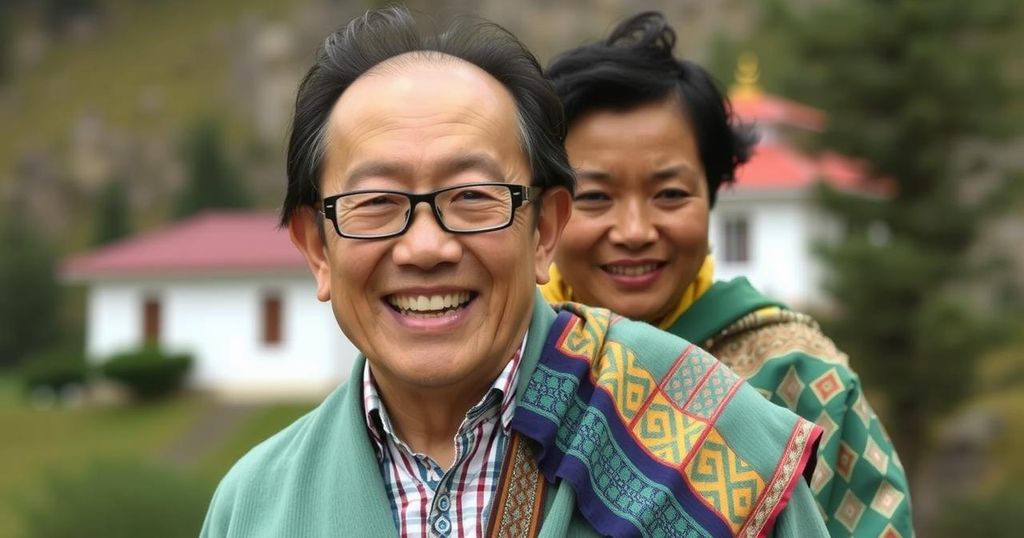Exploring Happiness: Insights from Ron Gutman’s Journey to Bhutan
Stanford professor Ron Gutman traveled to Bhutan to explore the country’s unique perspective on happiness, defined by its Gross National Happiness principle. His research emphasized the importance of simplicity, mindfulness, and a connection to nature in achieving true happiness. Bhutan’s approach serves as a model for integrating cultural values with economic development, despite the nation’s ongoing challenges.
In pursuit of understanding the essence of human happiness, Ron Gutman, a Stanford adjunct professor and noted speaker, embarked on a three-week expedition to Bhutan in October 2024. This small Himalayan nation, known for its philosophy of prioritizing Gross National Happiness over conventional economic measures, provided a unique backdrop for Gutman’s research. While trekking through the picturesque landscapes, Gutman interacted deeply with local communities, gaining insights into their lifestyle and values, which are closely tied to nature and mindfulness.
Bhutan’s approach to happiness, articulated by its fourth king, emphasizes a holistic view of well-being and environmental stewardship. Gutman asserts that simplicity is a crucial aspect of happiness: “The more I progress in the research of happiness, the more I personally understand it better, the more I connect it to mindfulness.” This connection illuminates the challenges of modern life, where excessive stimuli may detract from personal tranquility, while nature fosters a state of calmness that is inherent to human consciousness.
Despite Bhutan’s admirable focus on happiness, it is not immune to socio-economic challenges. The nation recently exited the United Nations’ Least Developed Countries designation, yet continues to grapple with a modest GDP per capita, illustrating a juxtaposition between economic hardship and the happiness of its citizens. Gutman highlights that the Bhutanese successfully maintain their cultural values and ethical foundations, even as they seek economic development. He emphasizes the importance of retaining these core beliefs while progressing, saying,
“What Bhutanese are doing really well… is keeping that strong core of beliefs, of morals, of ethics, of mindfulness as the foundation of how they make progress.”
In conclusion, Gutman’s expedition reflects a profound exploration of happiness that transcends material wealth. His findings advocate for a return to simplicity, mindfulness, and a deeper connection with nature as essential pillars of a fulfilling life, urging modern societies to reevaluate their definitions of success and well-being.
The exploration of happiness, particularly in non-Western cultures, has garnered increasing attention in recent years. Bhutan presents a distinctive case study due to its unique commitment to Gross National Happiness as a national policy, which prioritizes the holistic well-being of its citizens over mere economic advancement. The concept, initiated by the fourth king of Bhutan, has positioned the country as a global leader in promoting mental and environmental welfare, contrasting sharply with typical economic indices such as GDP. This focus presents valuable insights for academics and researchers like Ron Gutman, who seek to understand happiness from a broader, more meaningful perspective.
Ron Gutman’s insights from his journey through Bhutan highlight the intrinsic link between happiness, mindfulness, and nature. The emphasis on maintaining core beliefs amidst challenges positions Bhutan as a model for balancing economic growth with enduring cultural values. By advocating for simplicity and a reconnection with the natural world, Gutman provides a framework that encourages modern individuals to reassess their approaches to happiness and fulfillment.
Original Source: www.nbcphiladelphia.com








Post Comment